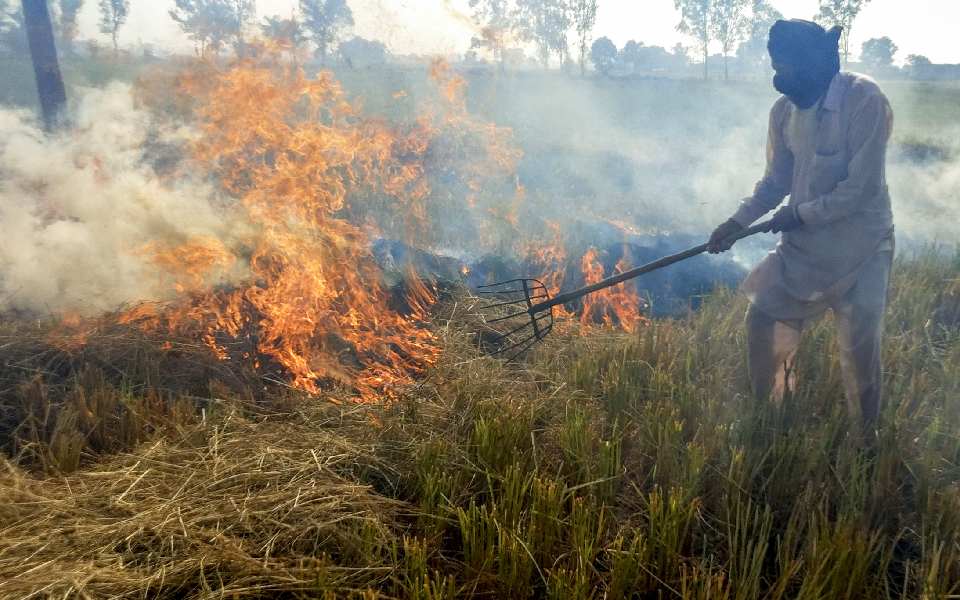New Delhi, Nov 7: The Centre has doubled the fine for farmers burning crop residue in view of the deteriorating air quality in the Delhi-NCR region, the penalty going up to Rs 30,000 for those with more than five acres of farmland.
According to the notification, which was published on Wednesday and comes following the Supreme Court's tough stance on the issue, farmers with less than two acres of land will now have to pay environmental compensation of Rs 5,000, up from Rs 2,500. And those with land between two and five acres will be fined Rs 10,000 instead of Rs 5,000.
Unfavourable meteorological conditions combined with vehicular emissions, paddy-straw burning, firecrackers, and other local pollution sources contribute to hazardous air quality levels in Delhi-NCR during late autumn and winters.
According to a Delhi Pollution Control Committee (DPCC) analysis, the city experiences peak pollution from November 1 to 15 when the number of stubble-burning incidents in Punjab and Haryana increases.
Major factors behind stubble burning include the paddy-wheat cropping system, cultivation of long-duration paddy varieties, mechanised harvesting that leaves standing crop stubble in the field, labour scarcity, and the lack of a viable market for crop residue.
Studies estimate that during peak burning periods, farm fires contribute up to 30 per cent of PM levels in the Delhi-NCR region and surrounding areas.
However, according to senior environmentalist Sunita Narain, the episodic burning of crop residue by farmers in winter is not the primary concern for poor air quality in Delhi-NCR. Instead, the persistent and major sources of pollution within the city, including transport and industries, are more worrisome.
Let the Truth be known. If you read VB and like VB, please be a VB Supporter and Help us deliver the Truth to one and all.
Godda (PTI): A man was beaten to death allegedly for stealing cattle in Jharkhand's Godda district, a police officer said on Thursday.
The 45-year-old man identified as Pappu Ansari was a resident of Ranipur village under Pathargama police station limit of the district, the police officer said.
The incident occurred in Matihani village under Poraiyahat police station limit on Wednesday night. Ansari was beaten to death by unidentified persons over stealing cattle.
Confirming the incident, Deputy Superintendent of Police J P N Chaudhary said the victim had a criminal record and had been to jail in several occasions in the past.
An investigation was underway to ascertain how the incident took place, the persons involved in the crime, the DySP said.
More details would be provided only after the investigation, Chaudary added.





